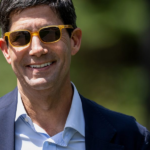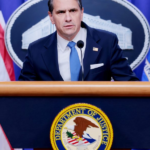That’s according to asset manager Schroders 2025 U.S. Retirement Survey, which finds that 92% of retirees report they are worried about inflation lessening the value of their assets, up from 89% last year and the top concern listed. Some 45% of respondents report their expenses in retirement are higher than they expected.
“Improving inflation data has not eased the fears of retirees,” says Deb Boyden, head of U.S. defined contribution at Schroders. “Rising prices on essentials like housing, food, and healthcare have significantly diminished the purchasing power and financial security of retirees.”
“Given the uncertainty surrounding potential tariffs, retired Americans are understandably worried about the impact of rising prices on their savings,” says Boyden. “This widespread concern offers a cautionary tale for younger generations: the sooner you start planning and saving for retirement, the more likely you’ll be able to fully enjoy your golden years.”
And the annual Social Security cost-of-living adjustment (COLA) is not likely to make up much of the difference. Though the rise will be officially reported in October, the nonpartisan advocacy group The Senior Citizens League is estimating it will be around just 2.3% next year.
“Placing broad-based tariffs on goods from numerous countries could have a profoundly negative impact on the daily lives of seniors, including the costs of drugs and medical equipment that many seniors rely on,” says Shannon Benton, executive director of the Senior Citizens League. “It is also highly likely that import taxes will keep food prices high, increase auto insurance costs, and contribute to higher inflation, among other effects.”
“What is more likely is that we will see foreign generic manufacturers leave the U.S. market because of low profit margins combined with their inability to pass through the costs of tariffs to buyers,” Wosińska and Blumenthal write. “Over the long term, tariffs may also increase the prices of branded drugs, which consumers already find unaffordable in many cases.”
And seniors are already struggling with their health care costs in retirement—86% say they are higher than expected, according to the Schroders survey, which eats away at savings.
Though Trump signed an executive order on May 12 aimed at lowering drug prices—prescription drug prices are two to three times higher in the U.S., on average, than they are in other developed nations—the policy would be “challenging to practically implement,” because it likely requires an act of Congress, JPMorgan analysts wrote in a note following the announcement.









